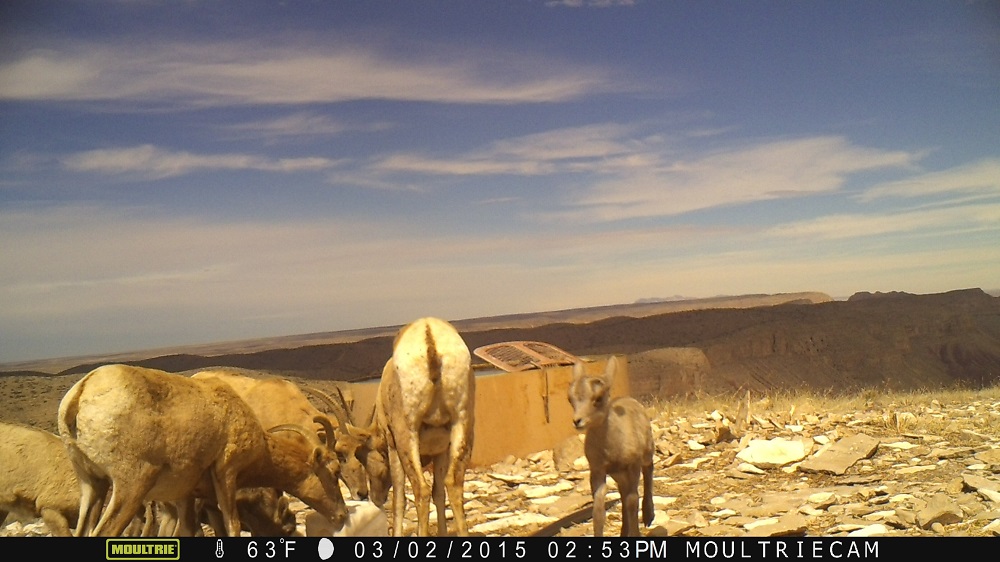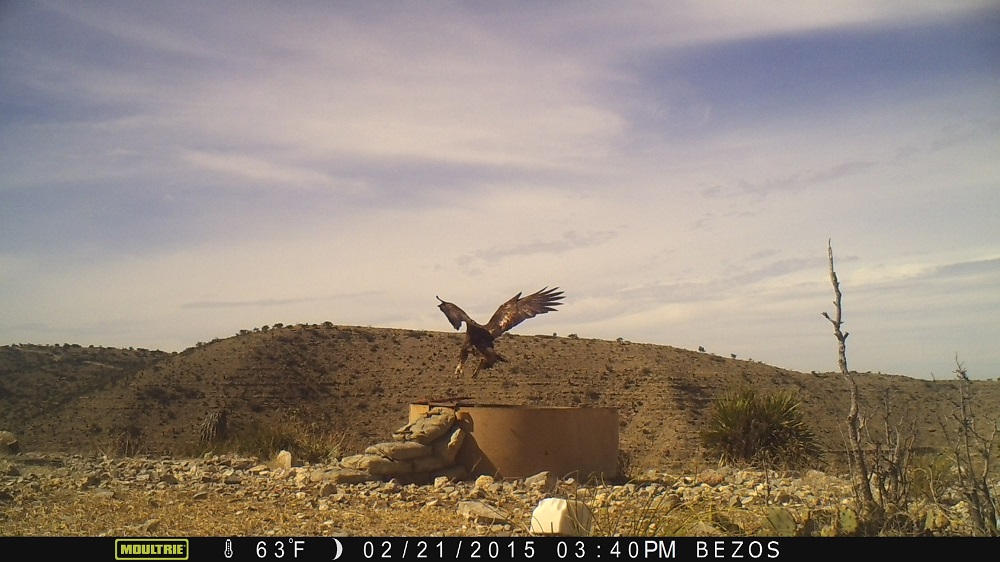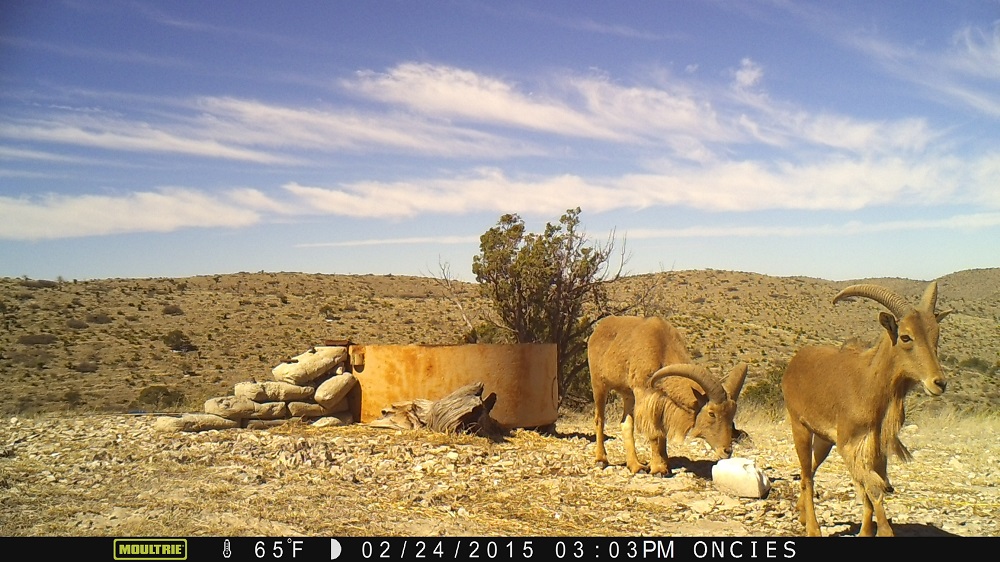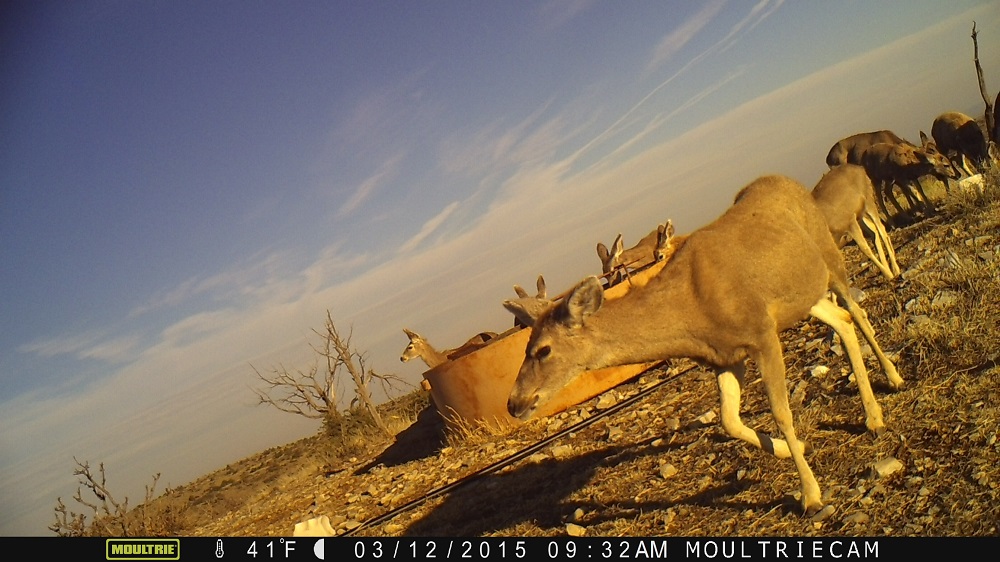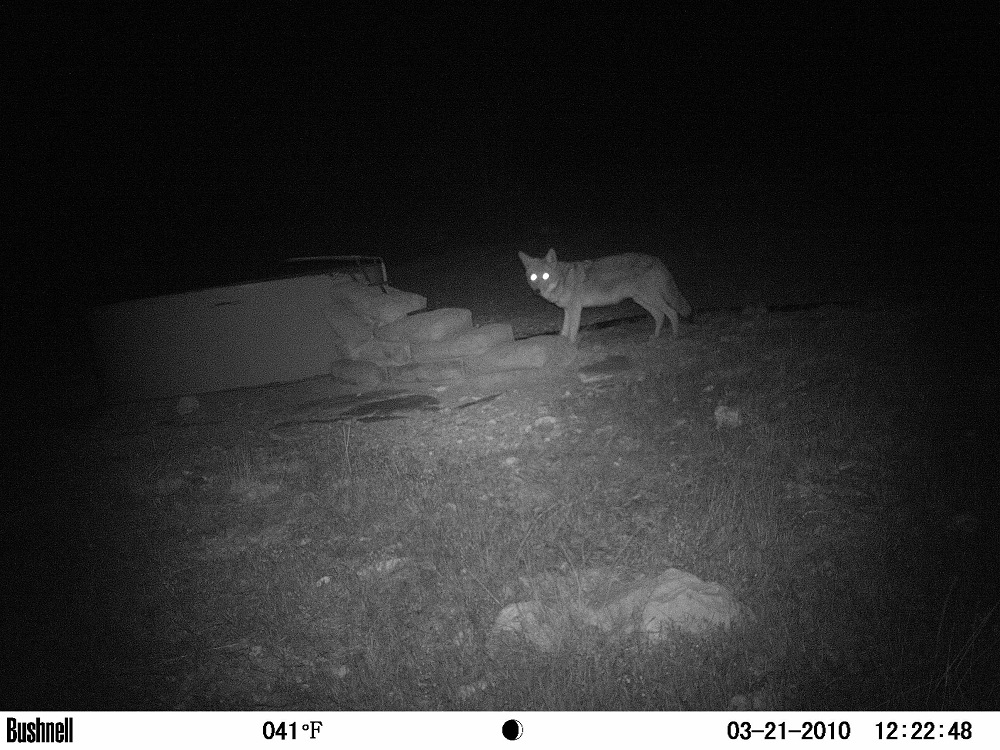Desert Habitat Restoration: Opposing Assumptions about Wildlife Biodiversity

Pictured below are 10 species of animals photographed in our mountains at Circle Ranch during Spring 2015. Conventional wildlife “management” says six of these species should be removed as they are assumed to “harm” desert bighorn sheep, desert mule deer, pronghorn and their habitat.
Diablo Peak: Aoudad, Bighorn (with Lambs), Mule Deer and Eagles
Bezos Ranch Overlook: Bighorn & Lambs, Golden Eagles, Mule Deer
Fence-line at Bean Ranch/Sierra Diablo WMA: Javelina, Elk, Aoudad, Golden Eagles
2-Section Rim: Aoudad, Javelina, Mule Deer, Elk
Lower Escarpment Above Box Canyon: Bighorn, Rams Fighting, Llamas, Mule Deer, Pronghorn
High Mountain Meadow: Mule Deer, Llamas and Lambs, Elk, Pronghorn, Coyotes, Jackrabbit, Javelina
Sheep Tank (above Wood Canyon): Bighorn & Lambs, Blue Quail, Wild Burros, Pronghorn, Longhorn
Based on experience and observation including 5,000 game camera photos which we review every month, we find nothing to support this assumption. No observable “harm” is being done by llamas, burros, aoudad, coyotes, longhorn or elk to any other species or habitat. In fact, we observe the opposite.
Based on this, we have reached a second conclusion, which also contradicts conventional wildlife “management”: Biodiversity builds on itself.
Fixed-Pie Biology
Conventional wildlife biology incorporates the “fixed-pie” fallacy, which assumes any animal’s benefit comes at another animal’s expense. In other words, if an aoudad takes a drink or an elk takes a bite of grass, another animal must suffer. Since the pie is fixed in size, all animals are locked into a mutually destructive “competition” wherein each fights all others for its piece.
Holistic management is built around the assumption that plant health depends on short-term exposure to large numbers and varieties of animals. The combination of grazing, hoof action and fertilization from dung and urine helps nature heal, improving soil life as well as the plant and animal communities. As natural systems become more robust they can support more types and larger numbers of animals. As these numbers and variety are allowed to grow, they help each other, all plants and soil life.
Sadly, the fixed-pie fallacy and “invasive species” pseudoscience dominate our universities, agencies and NGOs, leading to costly wildlife eradications and plant poisoning programs. These ill-conceived “vendettas” waste money, harm the plants and animals they are intended to help and degrade habitat for all living things.
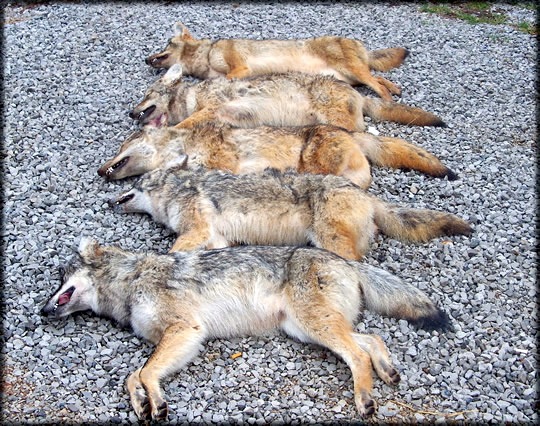
Predators like these are needed to shape animal behavior and manage populations. Removing them harms plants.

